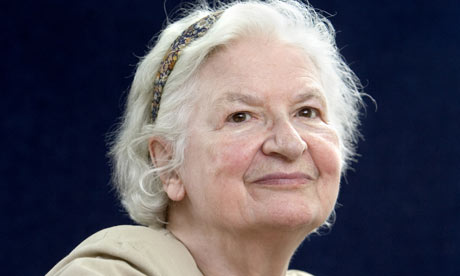Today is P. D. James‘s 90th birthday.
Thanks to Bob Denham’s wonderful compendium, Northrop Frye Unbuttoned, we have at our fingertips what Frye had to say in his notebooks about the detective novel. Here’s a selection:
Why am I obsessed with detective stories?. . . I’ve completely forgotten the Freudian explanation I came across recently. In my own terms (which wouldn’t of course exclude Freud) a really top-flight detective story has two levels of meaning throughout. Every sentence, every fact given, may be potentially a “clue”: it has its surface meaning in the narrative, and its teleological meaning as part of what you “see” in the final cognitio. Also, of course, the descent of the police as a Last Judgment symbol, reaching for the guilt that’s in everyone, and the scapegoat as the primal anxiety symbol. (Unbottoned, 66)
The detective story is written backwards, & belong to creative & dream time, not to the ordinary beginning-to-end, cause-and-effect time. It’s written in the way one composes a dream after having the alarm go off. This event-to-cause order is the mythical as distinct from the historical order. . . . I think my dream life demands these stories. (ibid.)
There are some Freudian reasons (except that I’ve forgotten what they are) for the appeal of detective stories: Freudianism itself owes much of its popularity to the same kind of appeal, Freudian therapy of neurosis being essentially a search for who done it in childhood. Or what done it. (ibid.)
I have often wondered why I’m so hooked on detective stories. . . . One thing that occurs to me is double meaning: a casual remark or incidental episode suddenly becomes relevant in that second world where the murderer is identified. Miniature apocalypse with Satan cast out and all the other details moving together in identity. (ibid.)
You can watch a complete television adaptation of James’s Shroud for a Nightingale by linking here.
